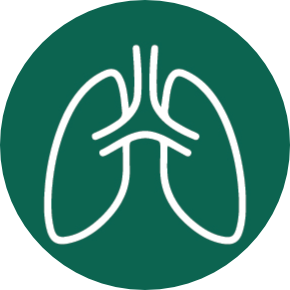Pulmonology is a medical specialty that pertains to the health of the respiratory system. This branch of medicine is dedicated to the diagnosis, treatment, and prevention of diseases affecting the lungs and other parts of the respiratory system, including the trachea, bronchi, bronchioles, alveoli, pleura, and diaphragm.
Practitioners of Pulmonology
Pulmonologists are the medical professionals specializing in this field. They are trained in internal medicine and then undergo additional specialized training in pulmonology. These specialists are adept at managing conditions ranging from chronic obstructive pulmonary disease (COPD) to complex lung infections and lung cancer.
When is Pulmonology Required?
Referral to a pulmonologist is typically necessitated by symptoms indicating respiratory distress or chronic lung conditions. These symptoms can include chronic cough, shortness of breath, abnormal chest X-rays, frequent lung infections, or chronic obstructive diseases. Additionally, patients with a history of smoking or exposure to lung irritants may also require pulmonological evaluation.
Typical Diseases Associated with Pulmonology
- Asthma: A chronic condition characterized by inflammation and narrowing of airways.
- COPD: Including emphysema and chronic bronchitis, usually caused by smoking.
- Lung Cancer: Often related to smoking or environmental factors.
- Pneumonia and Tuberculosis: Infections that impact the lungs.
- Pulmonary Fibrosis: Scarring and damage to the lung tissue.
- Sleep Apnea: A disorder where breathing repeatedly stops and starts during sleep.
- Pulmonary Hypertension: High blood pressure in the lung arteries.
Procedures and Treatments in Pulmonology
- Pulmonary Function Tests (PFTs): Assess lung capacity and airflow.
- Bronchoscopy: A visual examination of the airways using a bronchoscope.
- Chest X-rays and CT Scans: Imaging techniques to visualize lung conditions.
- Spirometry: Measures the amount and speed of air a person can inhale and exhale.
- Oxygen Therapy: For patients with chronic low blood oxygen.
- Medications: Including bronchodilators, steroids, and antibiotics.
- Surgical Interventions: Such as lung transplants or surgery for lung cancer.
Who Does Pulmonology Affect?
Pulmonology can affect individuals of any age, from infants to the elderly. Factors increasing the risk of pulmonary diseases include genetic predisposition, environmental exposure, lifestyle choices like smoking, and pre-existing health conditions like allergies and autoimmune diseases.
Conclusion
In conclusion, pulmonology plays a vital role in the healthcare system, addressing a wide array of complex and often chronic conditions of the respiratory system. Its importance is underscored by the prevalence of respiratory diseases globally, and the ongoing advancements in treatments and diagnostic techniques continue to improve patient outcomes in this crucial field of medicine.

